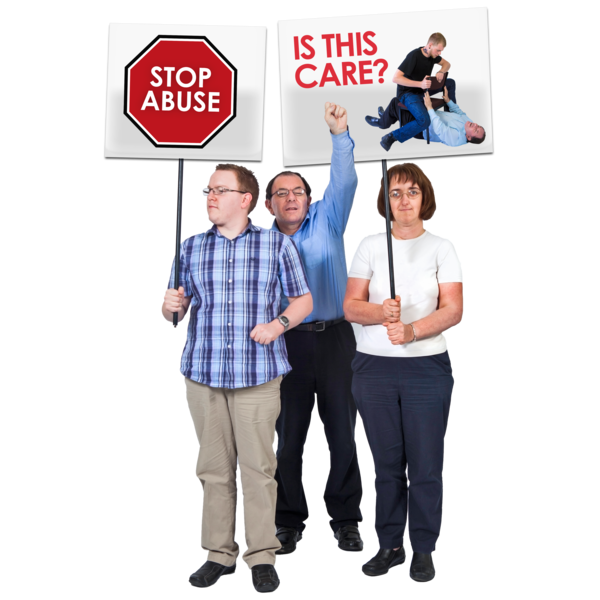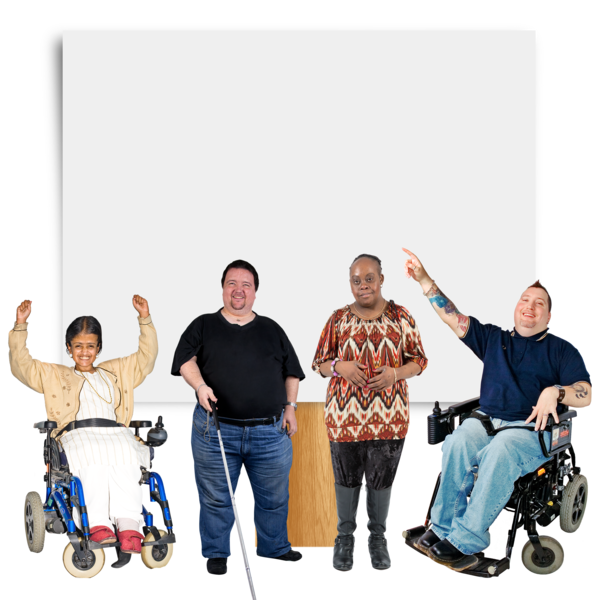Jackie O’Sullivan, Executive Director of Communications,
Advocacy
 Advocacy is when you get support to have your say.
&
Activism
Advocacy is when you get support to have your say.
&
Activism
 Activism is taking action to make change. Going to a
campaign
Activism is taking action to make change. Going to a
campaign
 A campaign is when people work together to try to change something.
event with others, writing letters and speaking up are all ways to take action.
of the
learning disability
A campaign is when people work together to try to change something.
event with others, writing letters and speaking up are all ways to take action.
of the
learning disability
 A learning disability is to do with the way someone's brain works. It makes it harder for someone to learn, understand or do things.
charity Mencap, said:
A learning disability is to do with the way someone's brain works. It makes it harder for someone to learn, understand or do things.
charity Mencap, said:
“The lessons learnt from this review – alongside Paula McGowan’s tireless campaigning - will have far-reaching effects for the treatment of people with a learning disability and autism
Autism is a disability. Autistic people find it difficult to understand what other people think and feel. They also find it difficult to tell people what they think and feel. Everyone with autism is different. in healthcare settings. If the recommendations are acted upon, lives will be saved - it's as simple as that.
“Oliver McGowan’s premature death is tragically not an isolated incident. At least 1,200 people with a learning disability die avoidably each year, and behind every death is a family and loved ones left devastated.
"We thank Paula for the inspirational work she has done in forging better health outcomes for a group that is too often forgotten. The work she has done in the face of such a tragedy is more important than ever, at a time when we look to healthcare professionals to protect and support people with a learning disability during this pandemic. "
–ENDS–
For further information or to arrange interviews, contact Mencap’s media team on:
- media@mencap.org.uk
- 020 7696 5414 (including out of hours).
Notes to editors
About Mencap
There are 1.5 million people with a learning disability in the UK. Mencap works to support people with a learning disability, their families and carers by fighting to change laws, improve services and access to
education
 Education is when you learn things. When you fill in a form to get a job, education means you write where you went to school, college or university.
,
employment
Education is when you learn things. When you fill in a form to get a job, education means you write where you went to school, college or university.
,
employment
 Employment means having a job.
and
leisure
Employment means having a job.
and
leisure
 Leisure is when you have time to do things you enjoy like playing sports or going to the pub.
facilities. Mencap supports thousands of people with a learning disability to live their lives the way they want.
Leisure is when you have time to do things you enjoy like playing sports or going to the pub.
facilities. Mencap supports thousands of people with a learning disability to live their lives the way they want.
Visit www.mencap.org.uk.
For advice and information about learning disability and Mencap services in your area, contact Mencap’s Freephone Learning Disability Helpline on 0808 808 1111 (8am-6pm, Monday-Friday) or email helpline@mencap.org.uk.
What is a learning disability?
- A learning disability is a reduced intellectual ability which can cause problems with everyday tasks – for example shopping and cooking, or travelling to new places – which affects someone for their whole life
- Learning disability is not a mental illness or a learning difficulty, such as
dyslexia
 Dyslexia is a learning difficulty. People who have dyslexia can find it hard to read, write and spell.
. Very often the term ‘learning difficulty’ is wrongly used interchangeably with ‘learning disability’
Dyslexia is a learning difficulty. People who have dyslexia can find it hard to read, write and spell.
. Very often the term ‘learning difficulty’ is wrongly used interchangeably with ‘learning disability’ - People with a learning disability can take longer to learn new things and may need support to develop new skills, understand difficult information and engage with other people. The level of support someone needs is different with every individual. For example, someone with a severe learning disability might need much more support with daily tasks than someone with a mild learning disability.